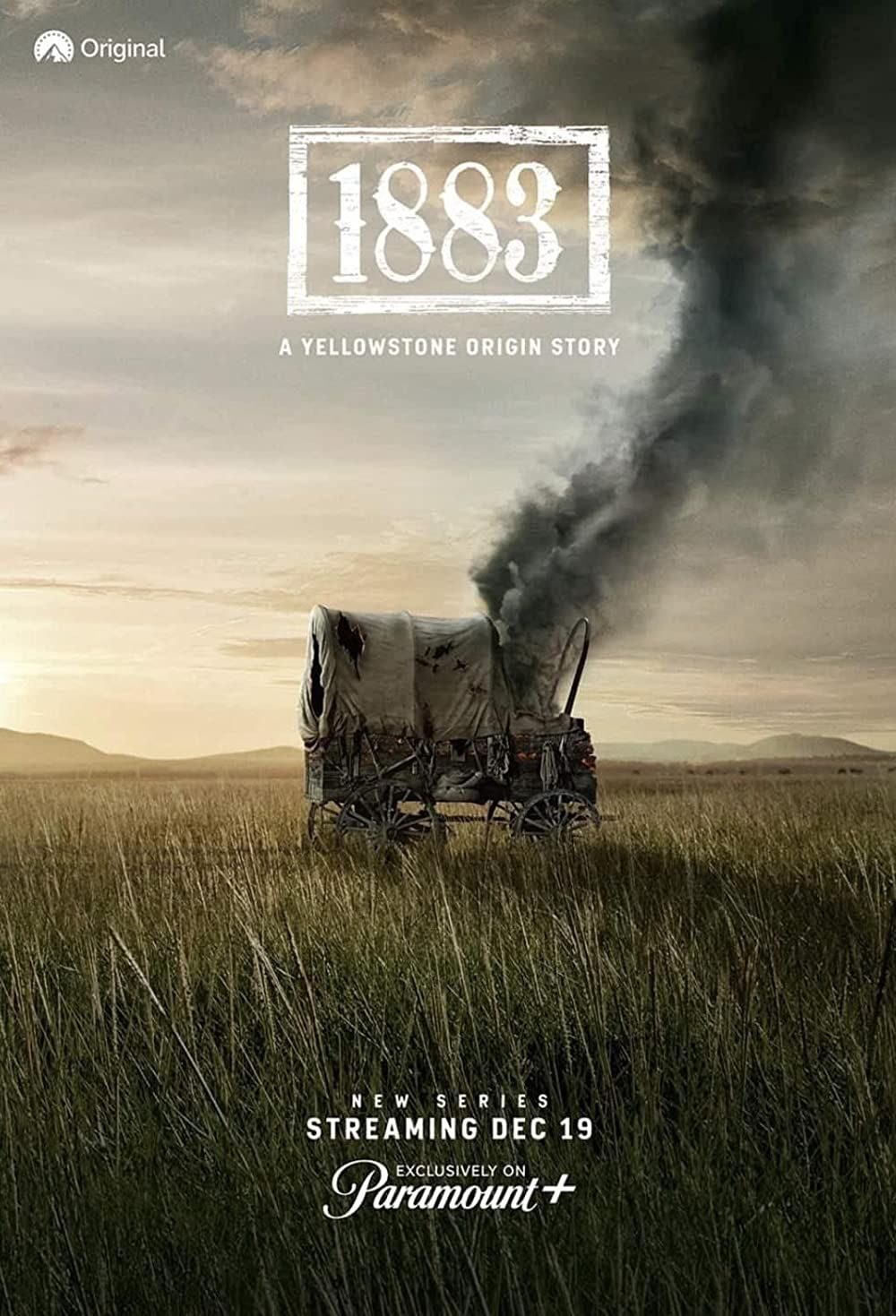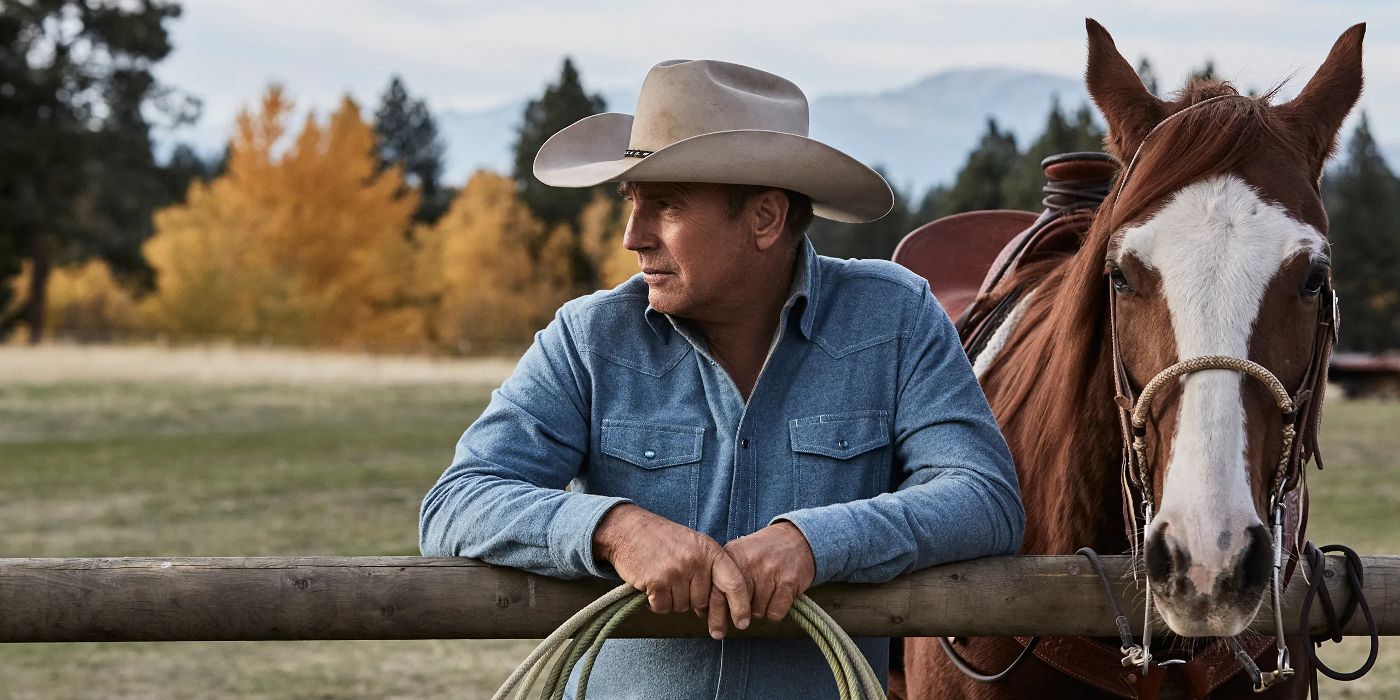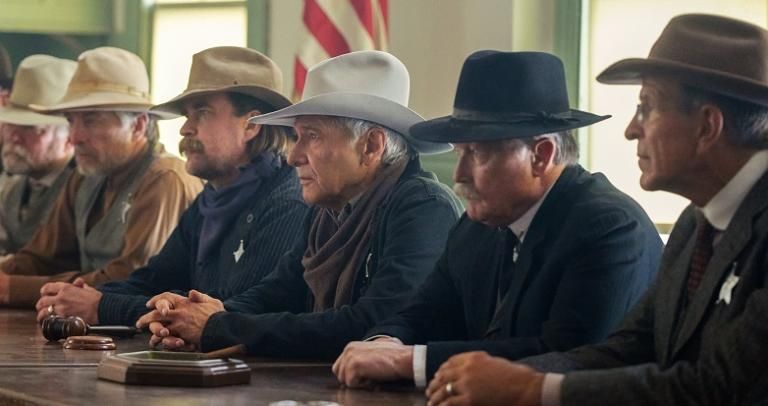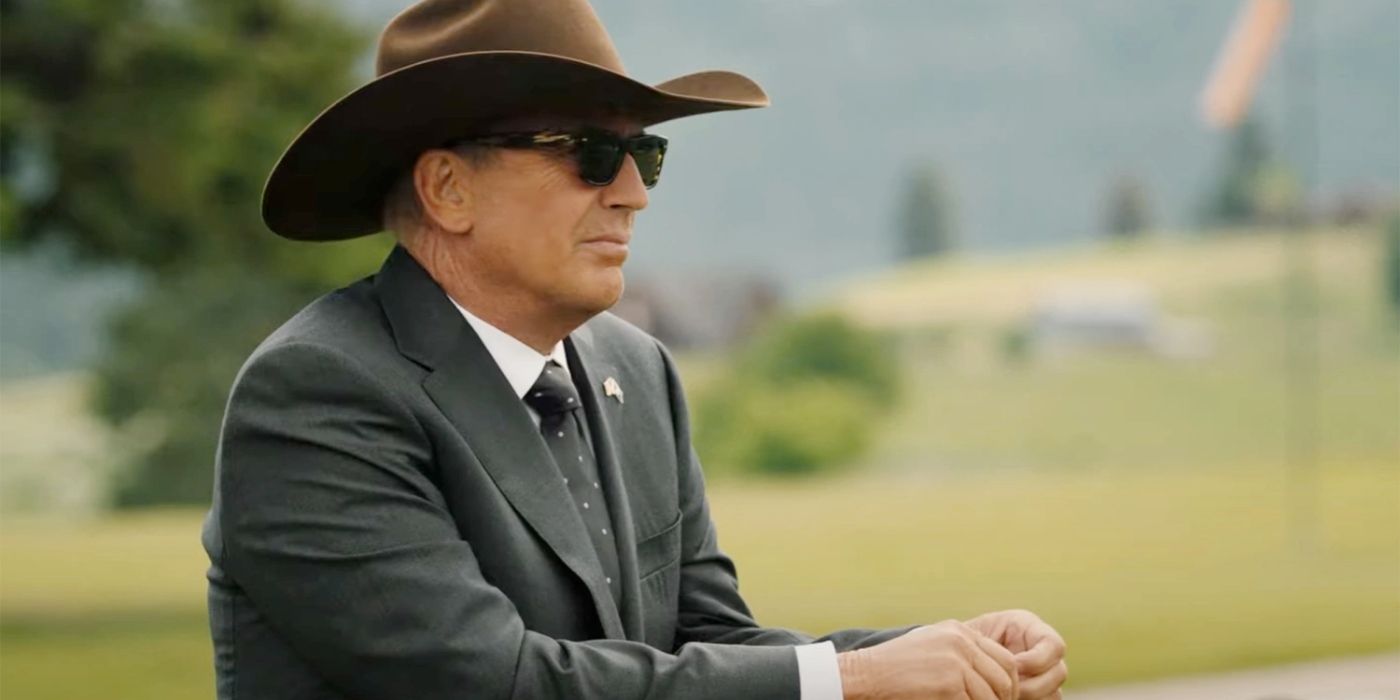After five seasons, the smash phenomenon Yellowstone will be coming to an end later this year. The decision to close out the show comes with the departure of series star Kevin Costner, who, last year, ultimately elected to leave the drama, presumably to put his efforts towards his new Western epic, Horizon: An American Saga.
It’s sad to see America’s favorite patriarchy come to an end, but it’s been a wild ride, and the fun is only getting started. Last year, a new sequel series was announced, along with another prequel that follows the Dutton clan two decades after 1923. Taylor Sheridan is showing no signs of slowing down with his Duttonverse expansion, so fans can expect to get their cowboy fix for many more years.
Yellowstone
- Release Date
- June 20, 2018
- Seasons
- 5
- Creator
- John Linson, Taylor Sheridan
As sad as it’ll be to see the modern-day Duttons ride off into the sunset, perhaps it’s a good time to ponder the actual point of it all. Sheridan himself has described his show as having no plot in a Town & Country article. He simply makes characters for audiences to follow.
That being said, was there any real message he was trying to convey to his audience? Surely, it wasn’t all about the grandeur of the West. While beautiful, most will never know the life of a cowboy. Is Yellowstone’s main audience missing the message behind the show and its characters?
What Is the Message?
Before we can determine if the message is missed, we first have to determine what that message is. Of the main themes in Yellowstone, the constant culture clash between conservation and progress has been the driving force since the start. John Dutton uses whatever means he can to keep his ranch from being seized by outside forces and has even made his children into soldiers in this never-ending war.
It’s big city greed vs. pull-yourself-up-by-the-bootstraps cowboys protecting their freedom and way of life, often with the use of murder. Another way of looking at this is a battle between the working class and capitalism. The ranchers of Montana are proud folk who embrace the arduous lifestyle of men on horses to enjoy the freedoms of their labors. Not all of them are willing to go to the lengths that a Dutton will, so they put their trust in John as their Livestock Commissioner, because he will do any and everything it takes to ensure the sun still rises on free land.
What the series shows us is that the dreams of the West are still alive, so long as there are men like John Dutton to fight for them. But it’s not the preservation of a way of life that is the core message. The Duttons may fight authority to keep what is theirs, but if one were to follow the trajectories of the main series and the spinoffs, they may recognize that authority rules all, and all must bend to it in some way.
All Must Yield
1883 found the first of what would become a long dynasty saddling up to make the long journey on the Oregon Trail. There was no law in the unmarked states that were traversed, and if there was any, it was the cruelty of nature. Sure, there were bandits, angry natives, and in-fighting, but all were part of the unpredictability of the un-traversed territory.
After all, there is a good reason why history shows the trail as one of the most unforgiving ventures in American history, and it took its toll in a way that would define the family legacy forever. Forty years later, in 1923, things were different. Statehood and civilization had come to Montana, with Jacob Dutton at the head of the Livestock Commission. Tragedy quickly falls over the family near the series’ start, when Jacob is temporarily incapacitated, leaving an opportunity for a local mining magnate to make a play for the ranch and forcing them into a position where they have to pay him in order to keep it.
The magnate, Donald Whitfield, becomes their new land baron with this scheme, having sided with the vengeful sheepherders of Boseman Montana in a brewing range war against the ranchers, both parties finding their livelihood in danger in the ongoing droughts that have lain siege to the Big Sky state.
Now, we go to the modern day. As far as the Dutton’s are concerned, government offices and the law are only dials to turn to keep their ranch, but there is only so much they can turn before they find a force that won’t yield. In this case, it’s in seasons three and four when they face off against Market Equities, who come dangerously close to taking the ranch if not for Jamie’s negotiating.
Barely preventing a full loss, John eventually concludes that to fight government and corporations taking what’s his, he has to do so from the inside. And this begins his tenure as Governor. In his announcement speech, John states that he is the wall that progress bashes against. In this case, progress is Market Equities. He has stopped fighting the government and has yielded to it to protect his land, although begrudgingly.

1883
- Release Date
- December 19, 2021
- Seasons
- 1
Worthy Authority
John ultimately uses his powers as Governor to subvert Market Equities strategies to take his ranch, but in doing so risks impeachment, not solely for his policies, but because of Jamie’s betrayal. Either way, it can almost be seen as cosmic. He never fully submitted to the authority of the government, and therefore, he may or may not pay for it. It’s easy to misconstrue this as a submission to the government or commanding figures as the authority, but that’s not the case.
In Yellowstone, everyone follows someone. The ranch hands follow John, who follows the will of his ancestors in protecting the ranch. These are what we can deem worthy authorities. Donald Whitfield only seeks to own, making him an unworthy authority. The government is much the same way. A worthy authority isn’t just a person or entity, though, but an ideal based on the perception of one’s self.
In the case of this dynasty, and even that of the Rainwater heritage, family ties are a worthy authority. For the ranch hands, it’s the force that gives them a home and purpose. In cases like Jimmy’s, a new lease on life. For Teonna Rainwater, it’s her people who risk everything to protect her. For Spencer Dutton, whose long-awaited return to the Yellowstone hangs over 1923, it’s his familial duties.
The Slate article titled Yellowstone’s Politics Are Left. And Right. And American. explains this notion best, stating freedom means being left alone to be who you are, and above all, not being made to do things you don’t want to do. The Duttons desperately fight to protect this freedom but look at everything they’ve done for it. Everyone finds themselves behind a desk, reluctantly, in John’s case. In each series, the characters look to a common leader, and for those leaders, the answers are never easy.
Sometimes they are uncomfortable. Dutton’s ceding to greater powers is played as strategic, but we know what happens when they fail to fall in line. They have always had to adapt to survive, but stubbornness can cost them everything, and it may very well do that this fall when Yellowstone comes to an end.






